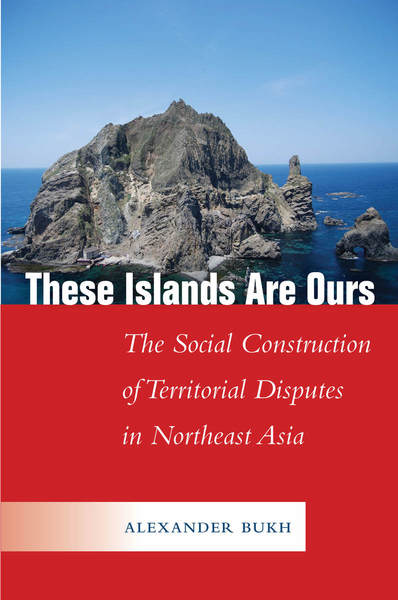Research
Published 15 July 2020These Islands Are Ours

Dr Alexander Bukh, Victoria University of Wellington, has a new book, 'These Islands Are Ours: The Social Construction of Territorial Disputes in Northeast Asia' (Stanford University Press), that stems from research funded by his 2013 Marsden Fund grant
Synopsis
Territorial disputes are one of the main sources of tension in Northeast Asia. Escalation in such conflicts often stems from a widely shared public perception that the territory in question is of the utmost importance to the nation. While that's frequently not true in economic, military, or political terms, citizens' groups and other domestic actors throughout the region have mounted sustained campaigns to protect or recover disputed islands. Quite often, these campaigns have wide-ranging domestic and international consequences.
Why and how do territorial disputes that at one point mattered little, become salient? Focusing on non-state actors rather than political elites, Alexander Bukh explains how and why apparently inconsequential territories become central to national discourse in Japan, South Korea, and Taiwan. These Islands Are Ours challenges the conventional wisdom that disputes-related campaigns originate in the desire to protect national territory and traces their roots to times of crisis in the respective societies. This book gives us a new way to understand the nature of territorial disputes and how they inform national identities by exploring the processes of their social construction, and amplification.
About the author
Alexander Bukh is Senior Lecturer in International Relations at Victoria University of Wellington. He is the author of Japan's Identity and Foreign Policy: Russia as Japan's 'Other' (2009) and the producer and co-director of the documentary This Island Is Ours: Defending Dokdo/Retrieving Takeshima (2016).
Bukh, A (2020) These Islands Are Ours: The Social Construction of Territorial Disputes in Northeast Asia, Stanford: Stanford University Press
Hardcover ISBN: 9781503611894
Ebook ISBN: 9781503611900
Additional information: Stanford University Press
RESEARCHER
Dr Alexander Bukh
ORGANISATION
Victoria University of Wellington
FUNDING SUPPORT
Marsden Fund
CONTRACT OR PROJECT ID
VUW1320: 'Territorial Disputes and Civil Society in Northeast Asian Democracies'
